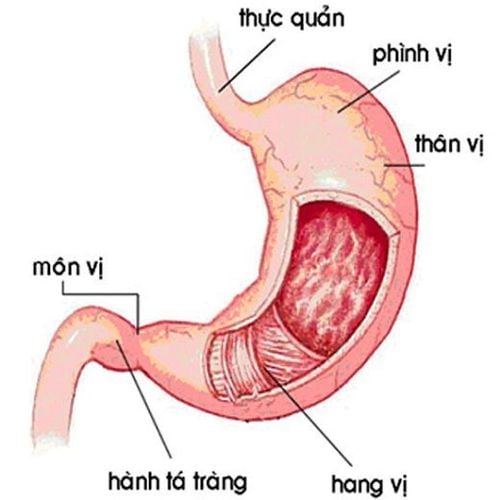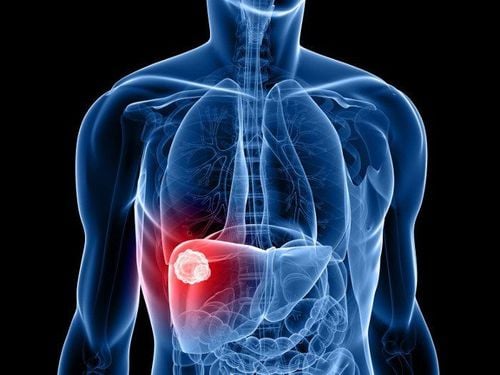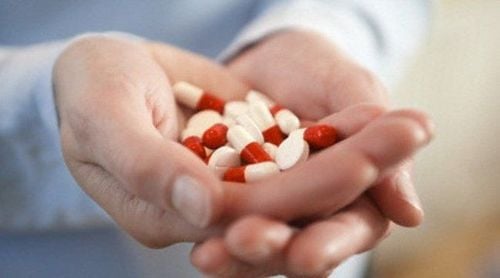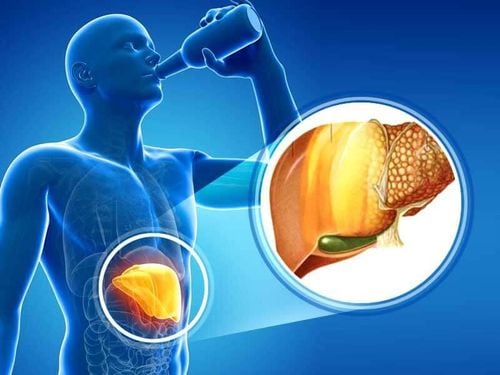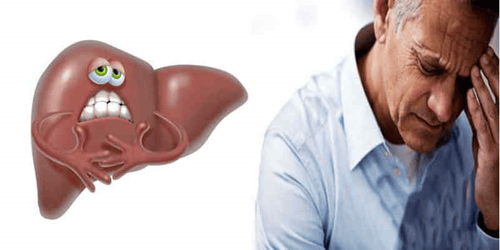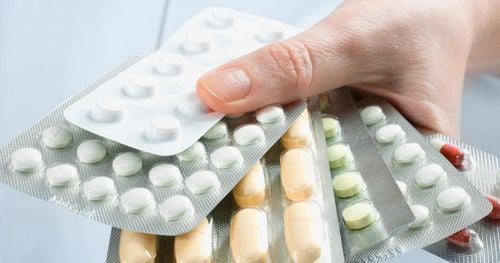This is an automatically translated article.
The article is professionally consulted by Master. BSCK II Phan Thi Minh Huong - Gastroenterologist - Department of Medical Examination & Internal Medicine - Vinmec Da Nang International General Hospital.The human liver is a miraculous organ. Every day, the liver's role is to make bile, metabolize nutrients from the diet, clean toxins from the blood, break down fats, control blood sugar and hormone levels, store iron and more. Therefore, when liver disease is present, the patient will have systemic symptoms very early and need to be detected and treated early to maintain complete liver function in the long run.
1. Risk factors that increase the likelihood of liver disease
Toxin exposure While the liver is responsible for clearing toxins from the body from the blood, overexposure to toxins can still be harmful because it exceeds the liver's ability to remove toxins. Toxins can come from any source of exposure in one's daily life, even the food consumed. Indeed, care should be taken to wash fruits and vegetables before processing to ensure that the body does not inadvertently over-consume pesticides, including pesticides.Drugs, supplements that are not clear Not all drugs, supplements, whether labeled as "natural origin" or "herbal", are meant to be completely good for health. human body. In fact, there are many herbs and supplements that have been linked to the potential for liver damage. Even on a site where there is already liver disease, these self-medicated supplements aimed at "replenishing the liver" can make liver damage even worse.
Excessive alcohol consumption Alcoholic fatty liver, causing inflammation of the liver (alcoholic hepatitis), eventually scarring (cirrhosis) and even liver cancer is a process that begins with prolonged consumption at least 4 drinks a day for men and 2 drinks for women. Until the patient detects the appearance of external symptoms, the liver has really been damaged, cannot be repaired and restored as it was. However, one thing that can still be saved is that if you stop drinking alcohol in the fatty liver stage, you can see that the damage in the liver will recover to near normal.
Have a metabolic disorder Components of metabolic syndrome include obesity, diabetes or high cholesterol. One or both of these conditions can cause nonalcoholic fatty liver disease, which can also lead to cirrhosis and liver cancer outcomes.
History of liver disease Whether you or a family member has had liver disease , a person may be more susceptible to liver problems than the general population. For example, hepatitis B or C and iron overload are risk factors for liver cancer. If a loved one has an inherited liver disease, such as iron overload, Wilson's disease, or alpha-1-antitrypsin deficiency, it's important to pay attention to early symptoms and actively avoid factors that can damage the liver. like drinking.

Tiêu thụ quá nhiều rượu bia là một trong những yếu tố mắc bệnh gan
2. Signs and symptoms of liver disease or liver damage
Taking care of the health of the liver plays a big role in holistic health care. People with liver damage or existing liver disease may notice some early symptoms of liver disease but may not experience any signs or symptoms at all. However, recognizing common symptoms of liver damage such as jaundice, bleeding from varicose veins, ascites, and encephalopathy is essential for diagnosis, blood tests, liver ultrasound, and early treatment. liver.Jaundice Jaundice caused by the liver is always accompanied by signs of yellowing of the eyes. This condition occurs when the liver is not able to filter the blood properly to excrete bilirubin into the bile, a component eliminated by the daily destruction of old red blood cells.
If there is sudden jaundice or the skin color suddenly becomes worse, a liver function test should be determined to detect early the possibility that liver damage has occurred or may be worsening.
Hemorrhage from varicose veins Bleeding from varices occurs in the lumen of the esophagus or stomach. This is the result of a buildup of pressure from the liver that causes blood vessels to swell, swell, and burst. Bleeding complications are very serious and can be life-threatening if not timely local hemostasis intervention. Signs of bleeding from varicose veins are vomiting blood or passing black, thick, sticky stools. If a person has one of these symptoms, urgent medical intervention is needed as soon as possible.
Ascites Ascites is the accumulation of fluid in the abdomen. The mechanism that causes ascites is due to high pressure in the liver. The patient's abdomen will become larger with discomfort when eating because of always feeling full, breathing can become difficult, especially when lying down. Some patients with cirrhosis and ascites may be malnourished, in part due to poor appetite or the liver's inability to synthesize substances. Furthermore, fluid ascites is a very susceptible factor to infection. This infection is very serious; Therefore, when seeing ascites and sudden symptoms of abdominal pain and fever, the patient needs to be hospitalized immediately.
Hepatic encephalopathy Hepatic encephalopathy is distinguished from other brain lesions by the accumulation of toxins in the brain caused by liver damage. When the liver cannot filter toxins, the toxins stay in the blood and are carried to the brain, causing nerve cell toxicity. Symptoms of early hepatic encephalopathy are mood swings, decreased concentration, memory loss, and sleep-wake cycle disturbances. As the disease worsens, the person becomes confused, has unconscious repetitive actions and is very sleepy, often lying down for no other reason. At this time, the patient needs to be taken to the hospital because deep unconsciousness can suddenly become life-threatening without being detected in time.
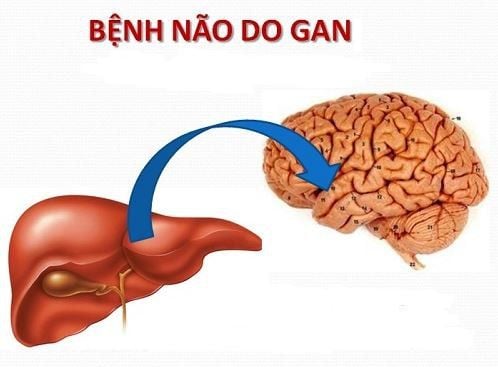
Bệnh não gan phân biệt với các tổn thương não khác là do sự tích tụ chất độc trong não từ tổn thương gan gây ra
3. Types of liver damage and symptoms by stage
Signs of possible liver problems based on the stage of the condition are as follows:Liver damage Liver cells can become inflamed and damaged in many different ways. The main causes are human-to-human hepatitis viruses, toxins from food and drink sources such as alcohol, certain herbal medicines, high-fat foods, metabolic syndrome, overweight, autoimmune disorders epidemics, genetic disorders ...
In this stage, most of the patients are undetectable because liver function can still compensate. However, while the liver cells are trying to heal themselves, another part can still be damaged. Over time, this can lead to cirrhosis and other progressive liver problems. Therefore, the role of periodic health examination, including liver enzyme and liver function tests is extremely necessary.
Liver fibrosis Liver fibrosis occurs when healthy liver cells are damaged, a prolonged inflammatory reaction will cause liver cells to die and be replaced by scar tissue (called liver fibrosis).
In the early stages, patients often do not have any symptoms of liver fibrosis because the remaining normal liver will replace compensatory. However, when liver function becomes decompensated, the patient will develop signs of liver disease. If liver disease is not treated early, cirrhosis can rapidly develop into cirrhosis.
Cirrhosis When too much scar tissue builds up over time, cirrhosis occurs. Cirrhosis has two stages: compensated and decompensated.
In the stage of compensated cirrhosis , the patient has only mild symptoms or may not have any signs of liver disease . At this point, some of the healthy liver cells are still working well enough to compensate for the scarred liver.
If liver damage gets worse, the person will develop a final stage of permanent liver damage, known as decompensated cirrhosis. This is end stage liver disease and very dangerous. At this time, the patient feels fatigue, jaundice, anorexia, abdominal distention and weight loss as well as is vulnerable to complications such as bleeding from esophageal varices, peritonitis, hepatic encephalopathy. ..
In summary, above are the risk factors and signs of liver disease that have been presented according to each stage of disease progression. If you experience the above symptoms, or only have one of the risk factors, you need to see a liver specialist for an early diagnosis and early treatment of liver disease before it gets worse.
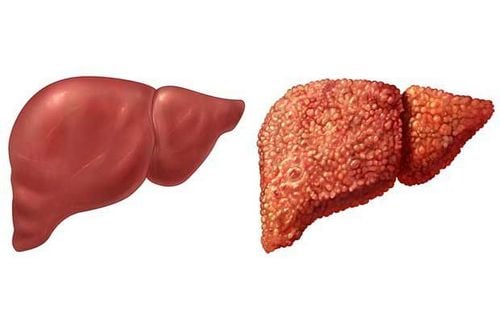
Khi mô sẹo tích tụ quá nhiều theo thời gian, tình trạng xơ gan sẽ xảy ra
Please dial HOTLINE for more information or register for an appointment HERE. Download MyVinmec app to make appointments faster and to manage your bookings easily.




